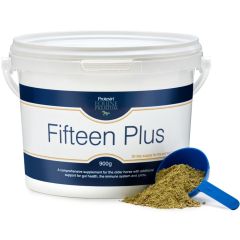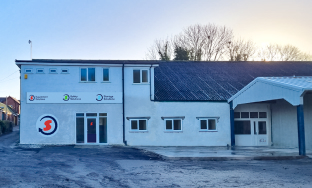Can we feed to slow down aging?
Protexin's Liam Gamble MA VetMB MRCVS looks at the changes you can make to your older horse's diet to tackle inflammation and reduce the effects of aging.
It may seem like getting older is inevitable, both for you and your horse. Rather than searching for the elixir of eternal youth, concentrate on how you care for and what you feed your horse to slow age-related changes in the body, and keep your horse feeling young and fit.

Many of the diseases of old age are related to inflammation – the body’s response to damage. Disease and inflammation in one area of the body fuel inflammation in other areas, and so a cycle of ever worsening disease emerges. Breaking this cycle, and reducing inflammation, could be the key to slowing down the diseases of old age. There are four key areas to focus on:
1) The gut
Over 70% of the body’s immune cells are found in the gut. Inflammation here easily spills out to the rest of the body. A suitable diet is vital to keep our horses healthy. As always, fibre should be the prime focus, with a diet rich in grass or forage. Fibre helps to keep the microbiota (the huge collection of bacteria in the horse’s gut) in balance, and provides safe calories. Feeding a good quality probiotic and prebiotic also helps to support the microbiota. Regular dental care is crucial, as dental issues are more common in older horses, and can prevent sufficient fibre intake. Avoid starch rich feeds, as they can have severely detrimental effects on the stomach and hind gut. Rather than starch, use oils to provide additional safe calories to those horses which need them.
2) The joints
Another common source of inflammation in the older horse is in the joints. Few horses will escape some degree of arthritis as they get older. Exercise at a suitable level, work on soft surfaces, practice routine farriery and supplement appropriately to help keep the joints healthy.
3) Weight
Excess body fat is highly inflammatory, and is linked to insulin resistance, laminitis, joint disease, dysbiosis and inflammation in the gut. Carefully monitor your horse’s body condition and feed accordingly.
4) The immune system itself
As our horses age, one of the most important changes is occurring invisibly inside the body: the immune system is aging. With advancing years, certain parts of the immune system lose their potency, and other parts increase their activity to fill the gap. This process, known as inflammaging, leads to increased levels of constant background inflammation, which acts as the engine driving further inflammation in other parts of the body.
A large variety of natural ingredients have been shown to support the immune system. Some of the best researched are natural anti-inflammatories like the omega 3 fatty acids, and antioxidants like vitamin C and vitamin E which act to reduce inflammation in the body. They can be found in the diet, or supplemented according to need.
Food means more than just calories to us and our horses; what we eat is intrinsically linked to our general health. Feeding to minimise inflammation could be the key to slowing down aging in your horse, and keeping them happy and healthy for years to come.
Liam Gamble is a veterinary surgeon and part of the technical team at Protexin Equine Premium. He graduated from Cambridge University in 2011, before working in a mixed practice in North Yorkshire, where he concentrated on equine medicine and surgery. Liam manages the international team at Protexin Veterinary; working with partners in over 40 countries.
Protexin has recently launched Fifteen Plus, a comprehensive supplement for the older horse. Fifteen Plus offers additional support for gut health, the immune system and joints.





